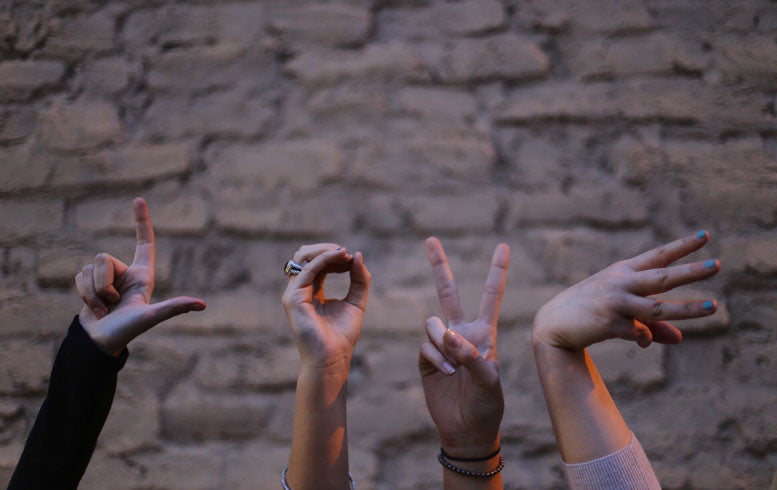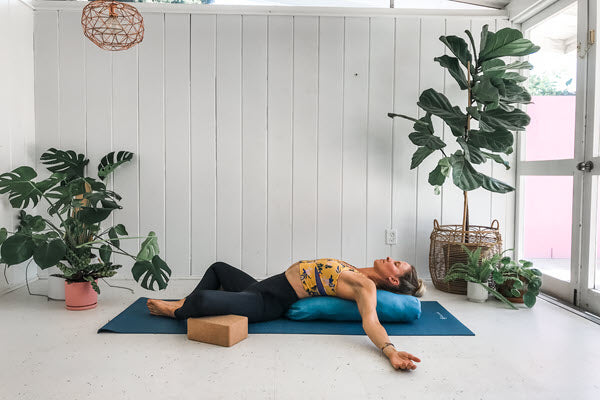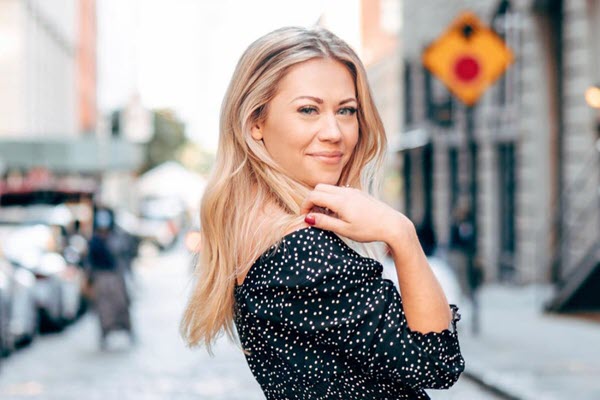6 Best Ways to Support a Loved One Who Has Cancer

Author: Karen Lynch
Just before my 36th birthday, my world was rocked: I was diagnosed with breast cancer. I was successfully treated and expected to remain cancer free, but three years later, my cancer recurred.
Then, just as I was getting a clean bill of health after another round of treatment, my mother was diagnosed with ovarian cancer. Now she needed me — and one good thing my cancer gave me was personal experience with how to be there for her.
Three out of four families will see a family member diagnosed with cancer, according to the American Cancer Society. Chances are there’ll come a day, if it isn’t already here, when you’ll wish you knew just what to do to support a loved one with cancer.
We talked to doctors, social workers, patients, survivors and their loved ones to create this list of the most important, meaningful and supportive things you can do to be there for your friend or family member who's been diagnosed with cancer.
Help your loved one get the best treatment
“Make sure your loved one gets into good medical care, and not into some crackpot place,” says Dr. Barrie Cassileth, chief of the Integrative Cancer Center at Memorial Sloan-Kettering Cancer Center. “There’s a whole world of quackery out there.”
Helping the patient get a second opinion and researching treatment options are also part of getting your loved one the best medical care possible. Don’t rule out complementary therapies as adjuncts to your loved one’s care. Acupuncture, massage therapy, nutritional counseling, yoga, fitness programs, self-hypnosis, guided imagery and meditation help many patients cope with the symptoms of cancer, cancer treatment and its side effects. And many respected integrative cancer programs now offer complementary therapies either on-site or on an outpatient basis.
But understand these therapies do not cure cancer. “It would be foolhardy for someone diagnosed with cancer to go exclusively to an alternative clinic,” says Cassileth. “You get one shot at treating cancer effectively. Don’t take chances with that.”
Be truly present
“The major difficulty we find with loved ones and friends and family is that they don’t know what to say to people,” says Cassileth. “The answer to that is you don’t have to worry about what to say; you just have to be there to listen and care.”
“Don’t try too hard to do or say the ‘right’ things,” says Stacie Beam-Bruce, a social worker at the Seattle Cancer Treatment and Wellness Center. “And don’t feel like you have to fix everything for them.”
Understand that as much as you would like to — you can’t. You can’t take away your loved one’s diagnosis and you can’t endure their treatment for them. But you can help facilitate their healing by offering them emotional, social and spiritual support.
“It was so much better to talk to someone I could just be myself with and not feel like I had to be strong for them,” says breast cancer survivor Terry Kais, who was diagnosed in 2004 at age 39. "I just wanted to break down at any moment and didn't want to feel bad about doing it."
"I had no problem crying with my friends and family and being pissed along with them that we had to be going through such a horrible situation," she adds. “Friends and family can never make things okay, but they can help you get through the day by just being with you, letting you cry, and letting you know that you are not alone. I had a sister-in-law who used to call me and ask, ‘how are things going down there in Iraq?’ It used to crack me up, because it did feel like I was fighting in a war, and I felt like she sort of ‘got it’ just a little bit.”
Sometimes all someone with cancer needs is to sit beside a loved one — someone to listen and talk to her if she can’t stand the quiet, hold her hand while she cries, or pray while she prays.
Aimee Chen’s best friend Diane also ‘got it.’ “Diane was with me at every single doctor's appointment," recalls Chen, a breast cancer survivor. "Not just in the waiting room; she was right there in the office. She was my ears, because some days I did not want to hear things. She listened, asked questions and remembered all the things I wanted to ask the doctor. Some days we did not say much to one another on the drive to chemo; other days we laughed. She did not have to do anything special. She was just there by my side.”
Offer practical (and timely) help
It may help to focus on tangible, everyday things you can do to make things a little easier for your loved one — helping prepare meals, doing the housework, assisting with childcare and/or running errands. This is where the masses come in — everyone will offer help, so give them all something tangible they can do.
If you head to the dry cleaner or grocery store regularly, include your loved one’s errands with your own. If you have children the same age, arrange for play dates and/or offer to pick up and drive their child around. Just think about the things that seem like a natural fit with your loved one’s needs, and offer that up.
Play on your strengths, too. If you are a natural coordinator, take on the task of assigning meals to all who want to cook for your loved one. Or, if you are a fitness buff, schedule walking buddies for your loved one for each day of the week, or take on that task yourself.
Don’t overlook any opportunity to offer support, however small the task may seem. “It shows that your friends really do care for you and want to be there for you,” says Cassileth.
Another very thoughtful way to help your friend or family member during this time is to stay on top of what’s in their schedule from day to day.
“I had a handful of friends who must have kept my chemo schedule in their calendars,” says Chris Maxwell, a finance director in Boulder, Colo., who was diagnosed with Hodgkin’s lymphoma at age 34. “Without any reminders from my end, they either called or I had a card in my mailbox each time I got home from chemo — all 12 treatments. When you are in chemo you feel like the world is moving on without you. You get inundated with attention in the beginning, but it is really toward the end of treatment when you need the most support. It was such an amazing feeling to know that they were mindful of the fact that my fight waged on.”
And, yes … do shower your loved one with cards and gifts.
“I used to love receiving the most thoughtful and loving cards,” says Kais. “Just knowing someone was thinking of me and praying for me used to give me so much inspiration. Kind, genuine words from someone's heart meant the world to me — they didn't have to be eloquent or upbeat or tell me that I would be ‘okay’; it was just so nice to know that someone cared about me and that I was on their mind. Again, it took away the isolation or loneliness that I would feel and helped me realize how much I was loved.”
Be flexible
It may happen that what you think is best isn’t what the patient really wants or needs. “Ask what she needs and be respectful of her wishes. Let her decide what is best in that moment,” says Beam-Bruce.
Of course, your loved one may not know what she needs, or her needs may change from day to day. So you may have to figure it out for yourself or pose deliberate questions: Do you want me to come visit you today? Sit with you one night a week? Walk with you after dinner? Take you to a yoga class? Take anonline yoga class with you?
“When family members are able to talk to their loved one about how to help, it leaves more time, space and energy for their loved one with cancer to focus on her healing,” says Beam-Bruce.
Take care of yourself, too
“For those in a supportive role, the most important thing is to be healthy, both physically and emotionally,” says Beam-Bruce. “The healthier you are, the better able you are to be fully present and helpful for your loved one, and the better you can help her go through her journey.”
That means getting enough sleep, eating well, exercising and taking part in activities that you enjoy. Or personally take part in some of those therapeutic activities. The bonus? You can manage your own symptoms of depression and anxiety that often accompany a loved one’s diagnosis. Better yet? “Most of these activities can be done together — enhancing wellness on multiple levels,” says Beam-Bruce.
Make them laugh
Finally, it sounds cliché, but honestly, laughter really is the best medicine. After my own surgery, my sister had me laughing so hard that I literally thought I would split a stitch. I know I’d have peed my pants, had I not left the hospital with a catheter. It hurt so horribly every time she cracked a joke, but to this day I actually look back on those days with fondness — what positive, special memories I have of that post-op period, thanks to her.
Survivor Sherry Smith agrees. “It was the laughter, the silliness, the keeping things light and ‘normal,’" she says. "It allowed me the freedom to just let loose and experience some of the joy that I thought I might never see again. When I would hear myself laughing from somewhere deep within my soul, there was a part of me that said, ‘You're going to make it. You're going to do this. You are so loved, and life is just so great even when it's so horrid.’”
Also in Blog

Body Peace & Personal Empowerment

Yoga for Swimmers: Poses for Strength and Mobility

